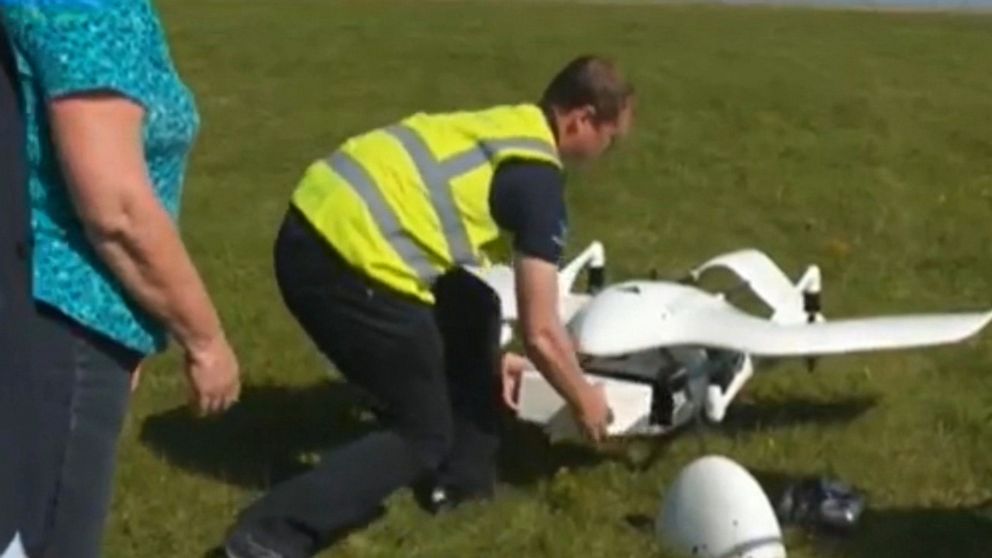The shift to healthcare appointments held over the phone has been quick. However for many patients in remote areas, the systems to access prescriptions have not kept pace. Here, Rebecca Payne, an out-of-hours GP for the Orkney Islands, discusses her experiences and new research into how international solutions that could improve telepharmacy.

Many healthcare consultations are now happening by phone. It’s a safe and convenient way of receiving care, particularly during the out of hours period and in rural areas, where seeing a doctor face to face can involve travelling long distances. But following such telephone consultations, many patients need medication, and accessing it isn’t always easy. Despite the widespread rollout of teleconsultations, the systems needed to deliver medication have not kept pace.
In collaboration with colleagues from across the UK, Australia and the Falkland Islands, I’ve worked on research published today in BJGP which assessed the options used internationally for accessing medication after such teleconsultations as patients and healthcare systems around the world grapple with this important issue.
As an out of hours GP, this is a problem I encounter regularly. I’ve worked across the UK, and have frequently had to ask patients to travel long distances, just to collect medication. In my current role in the Orkney islands, this has even involved flying patients off islands just to access a prescription. In the UK, patients often have to travel over an hour on rural roads, and in places like Australia, the logistical challenges are far greater.
This research brought together a team of experts from around the world to identify global solutions. We drew on their own experiences (including flying drones containing EpiPens direct to patients in Ireland, providing tele-consultations for the Royal Flying Doctor’s Service in Australia and restocking medicines chests in the remoter areas of the Falkland Islands) and completed a review of the literature to highlight the options available to solve this problem.
Many countries have pro-actively addressed this issue with a number of solutions in place internationally. These range from ‘anticipatory prescribing’ – providing medication likely to be needed in advance such as for dying patients, and simple medicine chests kept in people's homes, through to technological solutions such as vending machines in local communities. Drones offer promise but there are technological and regulatory hurdles to overcome before they can be used to get medicines direct to patients.
In many other countries, the rapid roll out of teleconsultations without adequate planning for medicines access created real difficulties for patients, risking inconvenience, health conditions worsening and increased healthcare costs further down the line.
We also found that new technologies may introduce new health inequalities. For example, patients who have gardens might be able to receive medicine deliveries via drone but patients in bedsits couldn’t access this method and would miss out.
Incorporating new technologies into healthcare is always challenging, and risks unintended consequences. More research is needed to evaluate exciting new solutions, and ensure that they do not result in the loss of in-person care in remote areas. Those planning services need to ensure that when healthcare is offered remotely, routes to access prescribed medication are planned too.
Teleconsultations have transformed healthcare delivery, but without a corresponding evolution in how medications are accessed, patients will continue to face significant barriers to getting the treatment they need. It's time for telepharmacy to catch up.
Read the full paper 'After the teleconsultation: getting medicines to patients when pharmacy services are not available' in BJGP.



_______________________________________________________
Rebecca Payne is an NIHR In-Practice Fellow whose research interests lie in the remote delivery of urgent primary care. As well as leading on the quality and safety themes of the Remote by Default 2 study, Rebecca lead the REMEDY project, exploring technological solutions for access to urgently required medication after a telephone consultation.
In addition to her research role, Rebecca is a salaried GP for NHS Orkney, working one week in eight as the Out of Hours GP for Mainland Orkney and connected isles.
What to read next
You don’t need a doctor to get more physically active – here are 10 simple steps you can take by yourself
29 July 2024
Discover ten simple ways to boost your physical activity without expensive gym memberships. Learn how small changes in your daily routine can lead to significant health benefits. From taking the stairs to rewarding yourself, find out how easy it is to incorporate more movement into your life.
Gentle reminders: are they gentle?
5 August 2024 | 1 comment
Isra AlBastaki, a current MSc student in Global Healthcare Leadership, explores the nuances of gentle reminders and diverse communication approaches. Her insights shed light on a critical aspect of healthcare communications.


